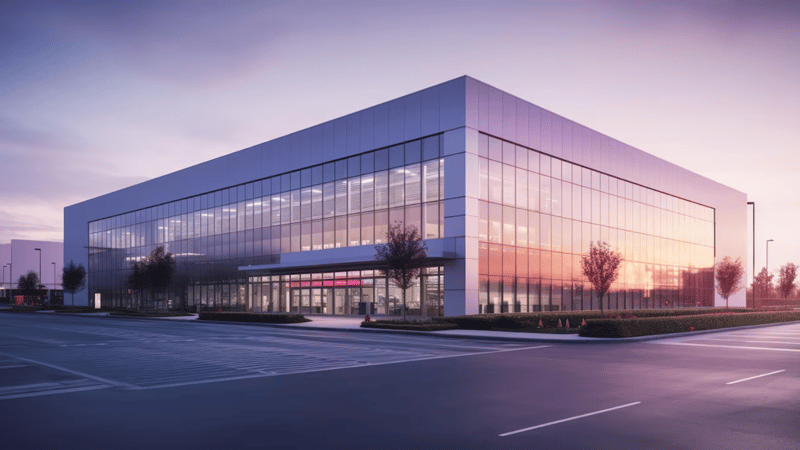Managing industrial properties is no small feat. From overseeing maintenance tasks to ensuring lease agreements are in order, industrial property managers handle a wide range of responsibilities. However, there are common pitfalls that can drain time, money, and resources if not properly managed. In this blog, we’ll explore five common industrial property management mistakes that can cost you both time and money, and how to avoid them.
1. Ignoring Regular Maintenance and Safety Checks
One of the most significant common industrial property management mistakes is overlooking regular maintenance and safety checks. Industrial properties, with their large equipment and heavy machinery, require frequent inspections to avoid costly repairs down the road.
Maintenance oversights in industrial properties are common, but they often lead to preventable issues like equipment failures, structural damages, or safety hazards. A minor problem, if left unchecked, can snowball into a major repair that disrupts operations and costs more than if it were addressed earlier.
A proactive maintenance schedule not only saves money but also ensures the safety of tenants and reduces downtime, keeping everything running smoothly.
How to avoid this mistake:
- Set up a regular maintenance calendar with inspections at key intervals.
- Prioritize tasks based on critical needs and risk levels.
- Work with reliable contractors who can perform quick fixes when required.
2. Failing to Address Lease Management Errors
Another costly mistake is not handling lease management properly. Lease management errors can lead to misunderstandings, financial losses, and even legal disputes. For instance, failing to properly track lease terms, renewal dates, or rent escalations can result in missed opportunities for rent adjustments or, worse, letting tenants overstay without proper legal documentation.
When lease terms are not well-managed, property managers might inadvertently violate laws or find themselves unable to enforce necessary actions on time. This can lead to uncollected rent, excessive vacancies, or costly litigation.
How to avoid this mistake:
- Invest in lease management software to track key dates and renewal clauses.
- Regularly review leases to ensure all terms are up to date and compliant.
- Communicate clearly with tenants about their lease obligations and renewal options.
3. Ineffective Communication with Tenants
Effective communication is key to smooth operations in any property management role. Ineffective communication with tenants is one of the most damaging mistakes industrial property managers make. If tenants feel their concerns aren’t being heard or addressed promptly, they may become dissatisfied, which can lead to a loss of business or even legal action.
When there is a breakdown in communication, small issues can become bigger problems. For example, a tenant might be struggling with machinery maintenance or utilities, but if the property manager isn’t responsive, it can escalate into a more significant problem that costs more to resolve.
How to avoid this mistake:
- Establish clear communication channels with tenants, such as a dedicated email address or a property management app.
- Address tenant concerns as quickly as possible, even if it’s just to acknowledge receipt and inform them of the next steps.
- Regularly check in with tenants to ensure everything is functioning as expected.
4. Mismanaging Tenant Move-ins and Move-outs
A surprisingly common oversight in industrial property management is not properly managing tenant move-ins and move-outs. The common industrial property management mistakes here include not having a clear move-in checklist or not inspecting the property before a tenant leaves. This can result in missed damages, lost security deposits, or misunderstandings about property conditions.
A move-in/move-out inspection ensures that you are fully aware of the property's condition, which can help prevent disputes over security deposits and save money on unexpected repairs.
How to avoid this mistake:
- Create a standardized checklist for move-ins and move-outs, covering all aspects of the property’s condition.
- Schedule a pre-move-out inspection to identify any potential issues before tenants leave.
- Take photos and document property conditions thoroughly.
5. Overlooking Local Regulations and Compliance Issues
Another mistake industrial property managers often make is neglecting to stay updated on local regulations, zoning laws, and compliance requirements. Common industrial property management mistakes can happen when managers fail to track changes in these legal aspects. Violating local laws can lead to fines, penalties, or forced modifications to the property, which can be costly both in terms of money and time.
This is especially important in industrial spaces, where zoning, environmental regulations, and safety standards are stricter. Being unaware of these regulations can lead to violations that result in costly penalties.
How to avoid this mistake:
- Regularly review and update knowledge of local zoning laws, environmental regulations, and industry standards.
- Work closely with legal experts to ensure compliance.
- Keep records of all inspections and regulatory submissions.
Conclusion
Being an industrial property manager comes with its challenges, but many of the mistakes that cost time and money are avoidable. By addressing common industrial property management mistakes such as maintenance oversights in industrial properties, lease management errors, ineffective communication with tenants, and staying compliant with regulations, you can save both time and resources while maintaining smooth operations.
Investing time in preventing these errors now will lead to long-term savings and more satisfied tenants. Make sure you’re staying proactive in your approach to managing industrial properties, and you’ll find that your job becomes more streamlined, efficient, and ultimately profitable.













